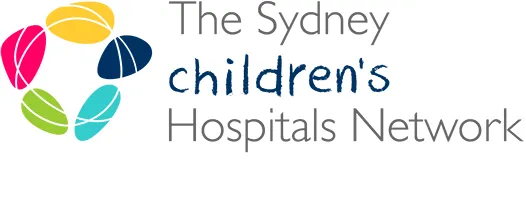Genetic tests
This traffic-light dropdown summarises the range of genetic and genomic tests relevant to general practice. It indicates which tests can be ordered by GPs, which require specialist input, and which are not recommended for routine use. Use this information to support appropriate test ordering, inform patient discussions, and ensure timely referral to genetics or specialty services.
Legend
| 🟢 | Tests able to be ordered by a GP |
| 🟡 | Tests able to be ordered by a GP under some circumstances |
| 🟠 | Tests unable to be ordered by a GP, but which can be ordered by a non-GP specialist |
| 🔴 | Tests which shouldn’t be routinely offered or ordered |
| ⚪ | Other genetic tests which may be discussed in general practice |
🟢 Tests able to be ordered by a GP
What it tests for
When to consider this test or referring for this testIf a person is planning a pregnancy or in early pregnancy Medicare rebate (check MBS item for criteria before ordering)Yes – for the three-gene screen (CF, SMA, FXS) No – for expanded carrier screening Further informationRGCS providers When to refer to clinical genetics and/or other non-GP specialistAutosomal recessive condition
X-linked condition
Refer urgently if there is a current pregnancy Refer non-urgently if a reproductive couple is planning a pregnancy What it tests for
When to consider this test or referring for this testFrom 10 weeks of pregnancy Medicare rebateNo Further informationNIPT providers When to refer to clinical genetics and/or other non-GP specialist
What it tests for
When to consider this test or referring for this testThis is a first-line genetic test for a child/adult with developmental delay, intellectual disability, autism, or at least two congenital abnormalities Medicare rebate (check MBS item for criteria before ordering)Yes Further informationRequesting this test prior to a paediatrician appointment may speed up diagnosis for a child When to refer to clinical genetics and/or other non-GP specialist
What it tests for
When to consider this test or referring for this test
Medicare rebate (check MBS item for criteria before ordering)Yes Further information
When to refer to clinical genetics and/or other non-GP specialistConsider referral to clinical genetics when there is an abnormal result What it tests forTests the 'CGG' repeat number in the FMR1 gene, which is associated with FXS When to consider this test or referring for this test
Medicare rebate (check MBS item for criteria before ordering)Yes Further information
When to refer to clinical genetics and/or other non-GP specialist
What it tests forTests for a familial pathogenic variant within the CFTR gene, which is associated with CF When to consider this test or referring for this test
Medicare rebate (check MBS item for criteria before ordering)Yes Further informationCGE cystic fibrosis fact sheet When to refer to clinical genetics and/or other non-GP specialist
|
🟡 Tests able to be ordered by a GP under some circumstances
What it tests forTests for specific variants in the HFE gene: p.Cys282Tyr and p.His63Asp When to consider this test or referring for this test
Medicare rebate (check MBS item for criteria before ordering)Yes Further informationWhen to refer to clinical genetics and/or other non-GP specialist
What it tests forFactor V Leiden (FVL) tests for a specific variant in the F5 gene: c.1601G>A When to consider this test or referring for this test
Medicare rebate (check MBS item for criteria before ordering)Yes Further informationWhen to refer to clinical genetics and/or other non-GP specialist
What it tests forProthrombin (PT) tests for a specific variant in the F2 gene: c.*97G>A When to consider this test or referring for this test
Medicare rebate (check MBS item for criteria before ordering)Yes Further informationWhen to refer to clinical genetics and/or other non-GP specialist
What it tests forTests for deletions in the HBA1 and HBA2 genes associated with alpha thalassaemia When to consider this test or referring for this test
Medicare rebate (check MBS item for criteria before ordering)Yes Further informationWhen to refer to clinical genetics and/or other non-GP specialist
What it tests forTests for variants within the HBB gene associated with beta thalassaemia, sickle cell disease, HbE, and other HBB gene variants When to consider this test or referring for this testWhen a person is suspected of being a carrier for an HBB gene variant (beta thalassaemia, sickle cell disease, HbE or other) and if their reproductive partner (co-parent or donor) is suspected of also being a carrier of an HBB gene variant Medicare rebateNo Further information
When to refer to clinical genetics and/or other non-GP specialist
What it tests forTests for a pathogenic familial variant in the FH gene associated with FH When to consider this test or referring for this test
Medicare rebate (check MBS item for criteria before ordering)Yes Further informationWhen to refer to clinical genetics and/or other non-GP specialist
|
🟠 Tests unable to be ordered by a GP, but which can be ordered by a non-GP specialist
What it tests for
When to consider this test or referring for this testWhen a person has a personal or family history of an inherited cardiac condition Medicare rebateN/A for GPs Further informationGenetics in cardiac conditions When to refer to clinical genetics and/or other non-GP specialist
What it tests for
When to consider this test or referring for this testWhen a person has cancer and/or a significant family history of cancer, both/either of which likely have a genetic basis Medicare rebateN/A for GPs Further informationEviQ GP referral guidelines for cancer predisposition When to refer to clinical genetics and/or other non-GP specialist
What it tests for
When to consider this test or referring for this testPatient is concerned about a family history of HD and/or there is a suspicion of HD based upon clinical presentation Medicare rebateN/A for GPs Further informationCGE Huntington disease fact sheet When to refer to clinical genetics and/or other non-GP specialist
What it tests for
When to consider this test or referring for this testPatient is concerned about a family history of Marfan syndrome and/or aortic dissection, or there is a suspicion of Marfan syndrome based on clinical presentation Medicare rebateNo Further informationhttps://marfan.org/expectations/diagnosis/ When to refer to clinical genetics and/or other non-GP specialist
What it tests for
When to consider this test or referring for this testPatient is concerned about a family history of NF1/2, or there is a suspicion of NF1/2 based upon clinical presentation Medicare rebateNo Further informationhttps://www.ctf.org.au/diagnostic-criteria When to refer to clinical genetics and/or other non-GP specialist
What it tests for
When to consider this test or referring for this testPatient is concerned about a family history of DMD/BMD and/or there is a suspicion of DMD/BMD based upon clinical presentation which includes a documented raised CK level in the symptomatic individual Medicare rebateNo Further informationhttps://medlineplus.gov/genetics/condition/duchenne-and-becker-muscular-dystrophy/ When to refer to clinical genetics and/or other non-GP specialist
What it tests for
When to consider this test or referring for this testPatient is concerned about a family history of haemophilia and/or there is a suspicion of haemophilia based upon clinical presentation Medicare rebateNo Further informationhttps://medlineplus.gov/genetics/condition/hemophilia/#inheritance When to refer to clinical genetics and/or other non-GP specialistRefer to haematology (for assessment of indicators of haemophilia and diagnosis) and clinical genetics for genetic testing as appropriate What it tests for
When to consider this test or referring for this testPatient is concerned about a family history of SMA, or there is a suspicion of SMA based upon clinical presentation Medicare rebateN/A for GPs Further information
When to refer to clinical genetics and/or other non-GP specialist
What it tests for
When to consider this test or referring for this testPatient is concerned about a family history of TSC, or there is a suspicion of TSC based upon clinical presentation Medicare rebateNo Further informationManaging TSC across the lifespan – a resource for GPs and other clinicians When to refer to clinical genetics and/or other non-GP specialistMost TSC is managed and seen via specialised multidisciplinary TSC clinics around Australia, and details can be found on the TSC Association Website What it tests for
When to consider this test or referring for this testPatient has a first-degree relative with a known single-gene genetic condition Medicare rebateN/A for GPs Further informationTests can only be ordered by a clinical geneticist or a paediatric specialist in consultation with a clinical geneticist When to refer to clinical genetics and/or other non-GP specialist
What it tests for
When to consider this test or referring for this testPatient has a relevant family history of Alport syndrome or cystic kidney disease or there is a suspicion of these conditions based upon clinical presentation Medicare rebateN/A for GPs Further informationTests can only be ordered by a renal physician or clinical geneticist When to refer to clinical genetics and/or other non-GP specialist
What it tests for
When to consider this test or referring for this testPatient has a relevant family history of a retinal dystrophy and/or there is a suspicion of a retinal dystrophy based upon clinical presentation Medicare rebateNo Further information
When to refer to clinical genetics and/or other non-GP specialist
What it tests for
When to consider this test or referring for this testPatient has a relevant family history of hearing loss and/or a diagnosis of hearing loss with onset at <18 years of age Medicare rebateN/A for GPs Further information
When to refer to clinical genetics and/or other non-GP specialist
What it tests for
When to consider this test or referring for this testA person is strongly suspected of having a monogenic condition, based on the presence of:
Medicare rebateN/A for GPs Further informationTests can only be ordered by a clinical geneticist (at any age) or a paediatric specialist in consultation with a clinical geneticist (<10 years of age) When to refer to clinical genetics and/or other non-GP specialist
|
🔴 Tests which shouldn’t be routinely offered or ordered
What it tests forThere is no substantial evidence to support the use of MTHFR gene testing in routine clinical practice When to consider this test or referring for this testThis test shouldn’t be ordered - knowledge of MTHFR gene status is unlikely to change patient management Medicare rebateNo Further informationWhen to refer to clinical genetics and/or other non-GP specialistDo not refer to clinical genetics What it tests forThere is limited clinical utility to support the use of APOE gene testing in routine clinical practice When to consider this test or referring for this testThis test shouldn’t be ordered - knowledge of APOE gene status is unlikely to change patient management Medicare rebateNo When to refer to clinical genetics and/or other non-GP specialistIf a person has a clinical diagnosis of early-onset dementia and/or a family history, genetic testing in other genes may be indicated and a person can be referred to a neurologist or to an adult clinical genetics service What it tests forThere is currently no available genetic testing for hypermobile Ehlers-Danlos syndrome (hEDS) When to consider this test or referring for this testGenetic testing may be possible for rarer forms of EDS, such as classic EDS or vascular EDS, but this needs to be guided by a clinical diagnosis after identification of red flags Medicare rebateNo Futher informationHypermobility syndromes in children and adolescents - RACGP and https://gptoolkit.ehlers-danlos.org/ are helpful guides for managing hypermobility in primary care When to refer to clinical genetics and/or other non-GP specialist
|
⚪ Other genetic tests which may be discussed in general practice
What it tests forThis is currently still only available in certain centres and considered research When to consider this test or referring for this testWhile this is considered research it is likely to translate into clinical practice soon Medicare rebateNo Further informationCGE pharmacogenetics fact sheet When to refer to clinical genetics and/or other non-GP specialistGenetics services do not perform pharmacogenomics currently, but this is an evolving space What it tests forThis is not considered a reliable or clinically relevant test in genetics When to consider this test or referring for this testSignificant concerns exist around consent, use of data, and reliability of results Medicare rebateNo Further information
When to refer to clinical genetics and/or other non-GP specialistGenetics services will not review direct-to-consumer results or advise on these |









